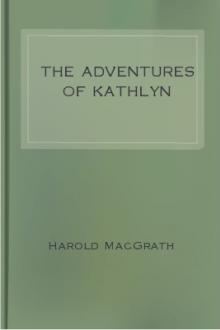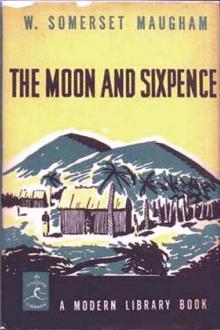Genre Fiction. Page - 274

grate, 'she shall feed the birds. This big loaf is for Signor John Baptist. We must break it to get it through into the cage. So, there's a tame bird to kiss the little hand! This sausage in a vine leaf is for Monsieur Rigaud. Again--this veal in savoury jelly is for Monsieur Rigaud. Again--these three white little loaves are for Monsieur Rigaud. Again, this cheese--again, this wine--again, this tobacco--all for Monsieur Rigaud. Lucky bird!'
The child put all these things between the bars into the soft, Smooth, well-shaped hand, with evident dread--more than once drawing back her own and looking at the man with her fair brow roughened into an expression half of fright and half of anger. Whereas she had put the lump of coarse bread into the swart, scaled, knotted hands of John Baptist (who had scarcely as much nail on his eight fingers and two thumbs as would have made out one for Monsieur Rigaud), with ready confidence; and, when he kissed her hand, had herself passed it caressingly over his face. Mons

at the earth on my diagram, and then at myself, and then, to clinch it, I pointed to myself and then to the earth itself shining bright green almost at the zenith.
"Tweel set up such an excited clacking that I was certain he understood. He jumped up and down, and suddenly he pointed at himself and then at the sky, and then at himself and at the sky again. He pointed at his middle and then at Arcturus, at his head and then at Spica, at his feet and then at half a dozen stars, while I just gaped at him. Then, all of a sudden, he gave a tremendous leap. Man, what a hop! He shot straight up into the starlight, seventy-five feet if an inch! I saw him silhouetted against the sky, saw him turn and come down at me head first, and land smack on his beak like a javelin! There he stuck square in the center of my sun-circle in the sand--a bull's eye!"
"Nuts!" observed the captain. "Plain nuts!"
"That's what I thought, too! I just stared at him open-mouthed while he pulled his head out of the sand an

tic for the feelings of Sophia and myself--We fainted alternately on a sofa. Adeiu Laura.
LETTER the 9th From the same to the same
Towards the close of the day we received the following Letter from Philippa.
"Sir Edward is greatly incensed by your abrupt departure; he has taken back Augusta to Bedfordshire. Much as I wish to enjoy again your charming society, I cannot determine to snatch you from that, of such dear and deserving Freinds--When your Visit to them is terminated, I trust you will return to the arms of your" "Philippa."
We returned a suitable answer to this affectionate Note and after thanking her for her kind invitation assured her that we would certainly avail ourselves of it, whenever we might have no other place to go to. Tho' certainly nothing could to any reasonable Being, have appeared more satisfactory, than so gratefull a reply to her invitation, yet I know not how it was, but she was certainly capricious enough to be displeased with our behaviour and in a

secure society against oneof the most destructive but insidious institutions of popery; Americanfemales, an appeal to them of the most solemn kind, to beware ofConvents, and all who attempt to inveigle our unsuspecting daughtersinto them, by the secret apparatus of Jesuit schools. The author of thisbook was a small, slender, uneducated, and persecuted young woman, whosought refuge in our country without a protector; but she showed theresolution and boldness of a heroine, in confronting her powerfulenemies in their strong hold, and proved, by the simple force of truth,victorious in the violent conflicts which were waged against her by theRomish hierarchy of America and the popular press of the United States.
The publishers have thought the present an opportune period to placethis work again in the hands of American readers, with such information,in a preface, as is necessary to acquaint readers of the present daywith the leading circumstances attending and succeeding its originalpublication.

r description as they seemed toneed or as pleased me, and in one or two instances I have gatheredin an incident from another version. At all times, among my friends,both young and old, English or American, I have always found eagerlisteners to the beautiful legends and fairy tales of Japan, and intelling them I have also found that they were still unknown to thevast majority, and this has encouraged me to write them for thechildren of the West.
Y. T. O.
Tokio, 1908.
CONTENTS.
MY LORD BAG OF RICE
THE TONGUE-CUT SPARROW
THE STORY OF URASHIMA TARO, THE FISHER LAD
THE FARMER AND THE BADGER
THE "shinansha," OR THE SOUTH POINTING CARRIAGE
THE ADVENTURES OF KINTARO, THE GOLDEN BOY
THE STORY OF PRINCESS HASE
THE STORY OF THE MAN WHO DID NOT WISH TO DIE
THE BAMBOO-CUTTER AND THE MOON-CHILD
THE MIRROR OF MATSUYAMA
THE GOBLIN OF ADACHIGAHARA
THE SAGACIOUS MONKEY AND THE BOAR
THE HAPPY HUNTER AND THE SKILLFUL FISHER
THE STORY OF THE OLD MAN WHO MADE WITHERED

Kathlyn with evasions. Frowning,he replaced the order in the box, which he put away in a drawer. Itwas all arrant nonsense, anyhow; nothing could possibly happen; ifthere did, he would feel certain that he no longer dwelt in a realworkaday world. The idle whim of a sardonic old man; nothing more thanthat.
"Father, is the king dead?"
"Dead! What makes you ask that, Kit?"
"The past tense; you said he was, not is."
"Yes, he's dead, and the news came this morning. Hence, the yarn."
"Will there be any danger in returning?"
"My girl, whenever I pack my luggage there is danger. A cartridge maystick; a man may stumble; a man you rely on may fail you. As for that,there's always danger. It's the penalty of being alive."
On the way to the dining-room Kathlyn thought deeply. Why had herfather asked them if they loved him? Why did he speak of the Big Trek?There was something more than this glittering medal, something morethan this simple tale of bravery. What? Well, if he declin

before. Mr. Crabbe was as dead as mutton, but Mr. Crabbe continued to write moral stories in rhymed couplets. I have read desultorily the writings of the younger generation. It may be that among them a more fervid Keats, a more ethereal Shelley, has already published numbers the world will willingly remember. I cannot tell. I admire their polish -- their youth is already so accomplished that it seems absurd to speak of promise -- I marvel at the felicity of their style; but with all their copiousness (their vocabulary suggests that they fingered Roget's Thesaurus in their cradles) they say nothing to me: to my mind they know too much and feel too obviously; I cannot stomach the heartiness with which they slap me on the back or the emotion with which they hurl themselves on my bosom; their passion seems to me a little anaemic and their dreams a trifle dull. I do not like them. I am on the shelf. I will continue to write moral stories in rhymed couplets. But I should be thrice a fool if I did it for a

Bracing himself, Thomas stepped through the ward and onto the first step, and had to steady himself against the wall as the effect faded. He shook his head and started up the stairs.
The banister was carved with roses which swayed under a sorcerous breeze only they could sense. Thomas climbed slowly, looking for the next trap. When he stopped at the first landing, he could see that the top of the stairs opened into a long gallery, lit by dozens of candles in mirror-backed sconces. Red draperies framed mythological paintings and classical landscapes. At the far end was a door, guarded on either side by a man-sized statuary niche. One niche held an angel with flowing locks, wings, and a beatific smile. The other niche was empty.
Thomas climbed almost to the head of the stairs, looking up at the archway that was the entrance to the room. Something suspiciously like plaster dust drifted down from the carved bunting.
A tactical error, Thomas thought. Whatever was hiding

g More's lifetime. Its first publication in this country was in the English translation, made in Edward's VI.'s reign (1551) by Ralph Robinson. It was translated with more literary skill by Gilbert Burnet, in 1684, soon after he had conducted the defence of his friend Lord William Russell, attended his execution, vindicated his memory, and been spitefully deprived by James II. of his lectureship at St. Clement's. Burnet was drawn to the translation of "Utopia" by the same sense of unreason in high places that caused More to write the book. Burnet's is the translation given in this volume.
The name of the book has given an adjective to our language--we call an impracticable scheme Utopian. Yet, under the veil of a playful fiction, the talk is intensely earnest, and abounds in practical suggestion. It is the work of a scholarly and witty Englishman, who attacks in his own way the chief political and social evils of his time. Beginning with fact, More tells how he was sent into Flanders with Cuthbert Tuns

"Him fella my brother belong me," was the answer. "Him fella dietoo much."
"You sing out, him fella brother belong you die too much," thewhite man went on in threatening tones. "I cross too much alongyou. What name you sing out, eh? You fat-head make um brotherbelong you die dose up too much. You fella finish sing out,savvee? You fella no finish sing out I make finish damn quick."
He threatened the wailer with his fist, and the black cowered down,glaring at him with sullen eyes.
"Sing out no good little bit," the white man went on, more gently."You no sing out. You chase um fella fly. Too much strong fellafly. You catch water, washee brother belong you; washee plenty toomuch, bime bye brother belong you all right. Jump!" he shoutedfiercely at the end, his will penetrating the low intelligence ofthe black with dynamic force that made him jump to the task ofbrushing the loathsome swarms of flies away.
Again he rode out into the reeking heat. He clutched the black'sneck ti